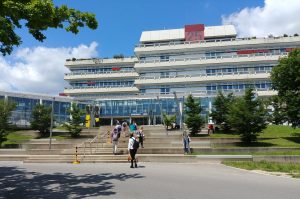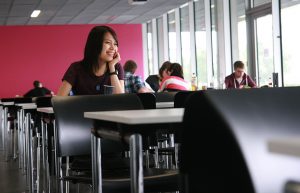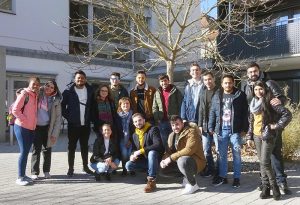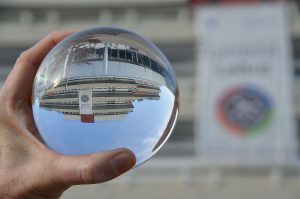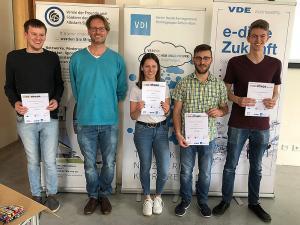The University of Applied Sciences Neu-Ulm (HNU) is cooperating with other Bavarian universities in a pilot project to expand the energy supply in rural areas of Namibia. The aim is to sustainably improve the local situation based on renewable energies. The project PROCEED of the Bavarian Research Institute for African Studies (BRIAS) will be funded by the Federal Ministry of Education and Research (BMBF) with about 1.23 million euros in the next three years.
In the project PROCEED, the HNU cooperates with partners at the Technical University of Ingolstadt and the Department of Social and Geography of the University of Bayreuth. In order to secure and expand the energy supply in remote areas of Namibia, the researchers of the Bavarian Research Institute for African Studies (BRIAS) rely on renewable energies and on island networks, so-called “mini-grids”. These are decentralized, smaller-scale power grids operated by local suppliers that are not integrated into a unified national interconnected network. Together with Namibian partners, models for the energy infrastructure are to be developed that meet the respective local electricity requirements, make use of current technical possibilities and gain acceptance among the rural population. The island networks should be economically viable and easy to maintain.
“We are pleased that we have been awarded the contract with the two other BRIAS partners for this research project, which builds on our numerous activities in the commercial use of decentralized electricity in developing countries,” says Prof. Dr. med. Elmar Steurer, Dean of Economics at the University of Applied Sciences Neu-Ulm. “Mini-grids are particularly useful in remote areas, for which there will be no nationwide supply via a central power grid, even in the long term, due to a lack of public finances,” adds Steurer.
Development of a cost-covering tariff and payment system
Steurer heads the sub-project “Mini-Grid Economics” of the University of Applied Sciences Neu-Ulm, which determines the conditions for the acceptance of mobile billing systems of electricity and evaluates concepts for the commercial use of the newly generated electricity by island grids. The focus is on the question of a cost-covering and socially accepted tariff and payment system. In addition, suitable business models are to be developed for companies in Namibia that use the generated electricity for commercial purposes. In addition to Prof. Dr. Elmar Steurer get professors dr. Jens Pätzmann and dr. Bernard Wagemann in this subproject in order to develop concrete recommendations for the establishment of isolated networks from the research results.
Research funding and scientific partners
The Federal Ministry of Education and Research (BMBF) supports the project PROCEED from the framework program “Research for Sustainable Development (FONA)”, which ia. the funding area “International Partnerships for Sustainable Innovation (CLIENT II)”. The scientific partner in Africa is the Namibia Energy Institute, which is supported by the Namibian Ministry of Mines and Energy. Partners in the implementation of the results in practice are the Hanns Seidel Foundation Namibia and the SADC Center for Renewable Energy and Energy Efficiency – SACREEE, based in the capital Windhoek.
BRIAS: Knowledge transfer with partners in Africa
The Bavarian Research Institute for African Studies (BRIAS), founded in 2014, is based on cooperation between the University of Bayreuth, the University of Würzburg, the Ingolstadt University of Technology and the University of Applied Sciences Neu-Ulm in the field of African Studies. Together with partners in Africa, new research ideas are to be developed and implemented. An important task for BRIAS is the transfer of knowledge to the decision-makers in politics and business.
Contact: Prof. Dr. med. Elmar Steurer, Dean of Economics,
elmar.steurer(at)hs-neu-ulm.de, Phone: +49(0)731-9762-1400

